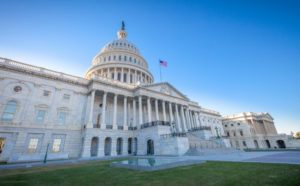
The House Armed Services Committee on Wednesday voted 42 to 17 to boost the topline of its version of the next defense policy bill by $37 billion. The panel debated the topline increase amendment during its markup of the fiscal year 2023 National Defense Authorization Act, which was still ongoing as of Defense Daily’s deadline, with much of the discussion focusing on the provision’s move to reverse the planned retirement of five Littoral Combat Ships (LCS). “The amendment funds critically-needed…

 By
By 











